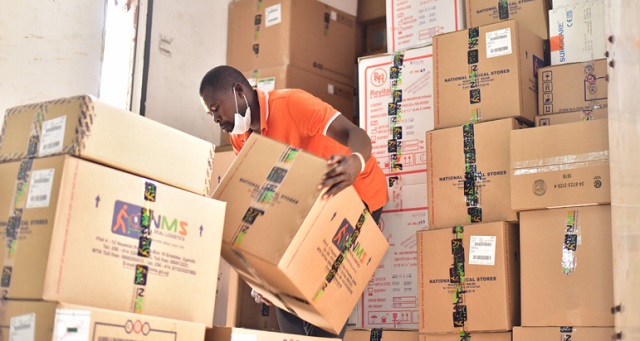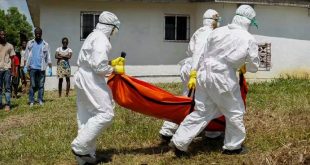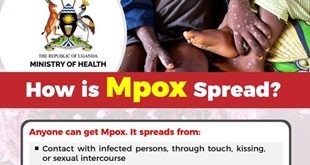
Medicine availability across the country currently stands at 85 percent with a target of reaching 90 percent within the next 1-2 years
| THE INDEPENDENT | The National Medical Stores (NMS) has called upon all government health facilities to submit their medicine requests within the set deadlines according to the Store’s delivery schedule to enhance availability of medicines in the country.
“Currently, we serve over 3,000 health facilities across the country and while a great number of them submit their requests on time, we still face challenges in some places where requests are submitted outside the set submission deadlines and this therefore affects availability of medicines in these particular places,” said NMS Spokesperson, James Odong.
“We therefore call upon all health facilities to help us by adhering to the delivery schedule guidelines available in the health facilities and the NMS website to enhance transparency and medicine availability,” he added.
Odong said he appreciates government for the continued support in enabling the store execute its mandate.
“The government has been very supportive in ensuring we have a conducive environment for logistics and supply which enables us operate efficiently,” he said.
Odong further noted that the deliveries are made as part of the Store’s predetermined bi-monthly delivery schedule but considerations are made for emergency requests.
“NMS delivers drugs to various government health facilities across the country based on a pre-determined schedule every two months which translates into six times every year. Of course there are emergency deliveries but that does not happen regularly,” he emphasised.
“The purpose of these scheduled deliveries is to enable us manage the available resources efficiently and for accountability purposes especially now considering the COVID 19 pandemic and related effects on transport restrictions and availability of medicines globally,” Odong said.
This development as the NMS delivered drugs, vaccines, soaps and fluid to various districts including Omoro District, Otuke District, Lamwo District, Kitgum District, Oyam District, Lira District, Kwania District, Kole District, Dokolo District, Apac District, Alebtong District, Agago District, Kapelebyong District, Arua Regional Hospital, Mulago National Burns Unit, Lira Hospital, Gulu Hospital, Kitagata Hospital, Katakwi District/Katakwi General Hospital, Moroto Hospital, Naguru Hospital, Mbarara University Hospital and Kabale Regional Hospital.
Other areas which received drugs during this aforementioned period are Soroti Regional Hospital, Mbale Regional Hospital, Jinja Regional Hospital, Ntlp, Kibuku District, Karenga District, Bukiwe District, Abim District/Abim Hospital, Mulago Hospital, Kayunga District, Bugweri District, Kotido District, Kampala National Burns Unit, Kaabong District/Hospital, Kamuli District, Moroto District, Napak District, Katakwi District/Katakwi General Hospital, Moroto Regional Hospital, Kayunga Hospital, Abim Hospital, Nakapiripit District, Nabilatuk District, Manafwa District.
NMS’ mandate is to procure, warehouse and distribute essential medicines and medical supplies, primarily to Government health facilities.
Medicine availability across the country currently stands at 85 percent with a target of reaching 90 percent within the next 1-2 years.
NMS recently hired clerks to follow up on drugs from the districts up to the rural health facilities under what is known as the last mile delivery model.
The institution is set to open a state-of-the art pharmaceuticals warehouse in Kajjansi off Entebbe road to increase bulk store capacity area from the current 8,000 pallet locations in the existing premises, to a minimum of 30,000 pallet locations.
The facility will also increase cold chain capacity to a maximum net storage volume of 2,500m3 purpose built as a Drive-in cold room (DICR).
“One of our main objectives is to consolidate, centralize and operate NMS services and infrastructure in one modern, purpose built and efficient building, with a minimum sixty-year lifespan, on the specified site,” said NMS General Manager Moses Kamabare.
In the year 2017/2018, NMS achieved higher than target score of 90 percent stock availability for Essential Medicines and 86 percent for Tracer items against a target of 75 percent set by Ministry of Health.
In the financial year 2018/19, NMS attained 92 percent stock availability for 41 Tracer Medicines at Central level against a target of 80 percent from Ministry of Health.
****
 The Independent Uganda: You get the Truth we Pay the Price
The Independent Uganda: You get the Truth we Pay the Price


